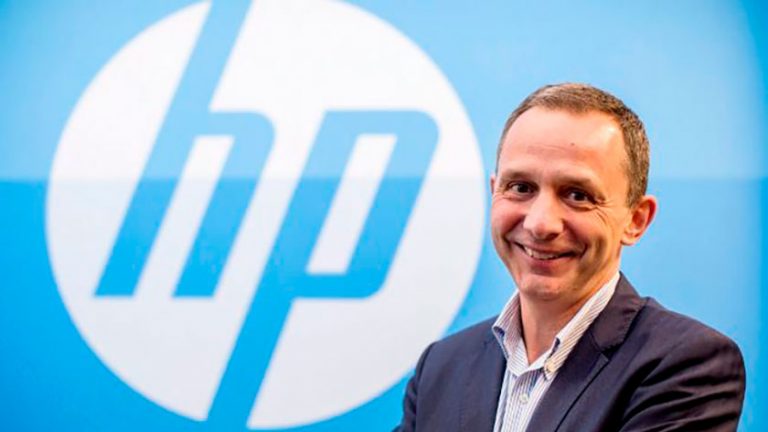 INFRA
INFRA
 INFRA
INFRA
 INFRA
INFRA
Personal computer maker HP Inc. delivered a decent earnings and revenue beat today as it revealed its latest financial numbers, sending its stock up by about 2% in the after-hours trading session.
The company’s results highlight the ongoing recovery of the global PC market, driven partly by a new generation of so-called AI PCs. HP reported earnings before certain costs such as stock compensation of 82 cents per share, coming in just ahead of Wall Street’s forecast of 81 cents. Revenue for the period fell slightly, by 1%, to $12.8 billion in the quarter, but it was still ahead of the Street’s target of $12.6 billion in sales.
All told, HP delivered a net profit of $607 million in the quarter, down from a profit of $1.054 billion in the year-ago period.
Looking ahead, HP offered a forecast that was more or less in line with the analyst view. It said it anticipates third quarter earnings of between 78 and 92 cents per share, the midpoint of which tallies with Wall Street’s target of 85 cents per share. For the full year, HP said it sees earnings of between $3.30 and $3.60 per share, ahead of the analyst consensus estimate of $3.43.
Like every other PC maker, HP has endured a rollercoaster ride this decade, enjoying surging sales during the COVID-19 pandemic, followed by a major slump over the last couple of years. However, that slump appears to have reached a crescendo, and PC sales are now expected to improve.
The company believes it can take advantage of numerous upgrades to the Windows operating system that were announced by Microsoft Corp. last week. The new artificial intelligence features in Windows are designed to work on a new generation of AI-enabled PCs that feature advanced processors.
HP has already unveiled multiple AI PCs this year, including powerful workstations and premium consumer laptops capable of running generative AI applications locally. Its new offerings are powered by best-of-breed AI accelerators made by Intel Corp. and Advanced Micro Devices Inc., as well as Qualcomm Inc.’s promising new Snapdragon X chips that will launch next month.
HP Chief Executive Enrique Lores (pictured) told Reuters in an interview that AI PCs will account for around 10% of the computers it sells in the second half of the company’s fiscal year. His forecast period spans May to November, and matches earlier statements he made that the adoption of AI PCs will start slowly at first.
The CEO said consumers will be the main buyers of AI PCs to begin with, because commercial customers still need time to evaluate new systems. But once they’re done with their assessments, he believes enterprises will start snapping them up in large quantities. That’s why he expressed confidence that demand for AI PCs will increase significantly in the next couple of years.
“Our expectation – as we have said before and we have not changed that – is that three years after launch, AI PCs will represent between 40% and 50% of total PC shipments,” Lores said.
HP’s forecast is more or less in-line with the analyst firms Gartner Inc. and International Data Corp., which both expect around 50 million AI PC sales this year, accounting for 22% of the total market.
Gartner and IDC both believe AI PC shipments will subsequently double in 2025, amounting to around 43% of the total market that year. IDC believes they’ll ultimate account for 60% of global PC shipments by 2027.
Lores told Reuters that AI PCs will help to push forward PC refresh cycles at enterprises in the coming years. However, the main factor driving AI PC sales now is Microsoft’s updated Windows 11 platform, which requires more advanced hardware for users to take advantage of its AI features.
Microsoft is also planning to end support for Windows 10 in October next year, and that will also help to boost PC sales, the CEO said.
“As customers evaluate AI PCs, they will see the value that they bring, [and] they will accelerate the refresh cycle,” Lores predicted. “From a productivity perspective they bring a lot of value.”
Lores gave an example of this, saying that his company worked with the global consultancy firm Deloitte Touche Ltd. to create an AI model that can save the average large enterprise around “100,000 hours in terms of productivity.” He also spoke of new tools and technologies developed by Microsoft that will enable people to work “more efficiently than before.”
Holger Mueller of Constellation Research Inc. that while investors are looking at the AI PCs as a potential growth driver, it might get more difficult to judge the overall impact of these next-generation devices. “Lores sees AI PCs accounting for 10% of all shipments, and that seems a tad bullish,” the analyst said. “The key will be HP’s product strategy, and it isn’t yet clear if all new and modern PCs will be called “AI PCs” or if consumers and businesses will still be given a choice between them and regular PCs. This is a key question for the important fall and holiday sales period that’s coming up.”
Regarding today’s results, HP said commercial PC sales rose 6% from a year ago to $6.2 billion, with shipments rising by 12%, suggesting that those refresh cycles are just beginning to kick into gear. The company highlighted a number of significant deals with enterprises across various industries.
On the other hand, sales of consumer PCs fell 3%, to $2.2 billion.
HP’s printing business was also a drag on the company’s overall sales growth. The company said revenue there fell 12% from a year earlier to $4.4 billion, while shipments plunged 17%.
According to Lores, the printing business is suffering from a “lack of investment” on the commercial side, though he anticipates the segment will stabilize in the second half of the fiscal year.
THANK YOU